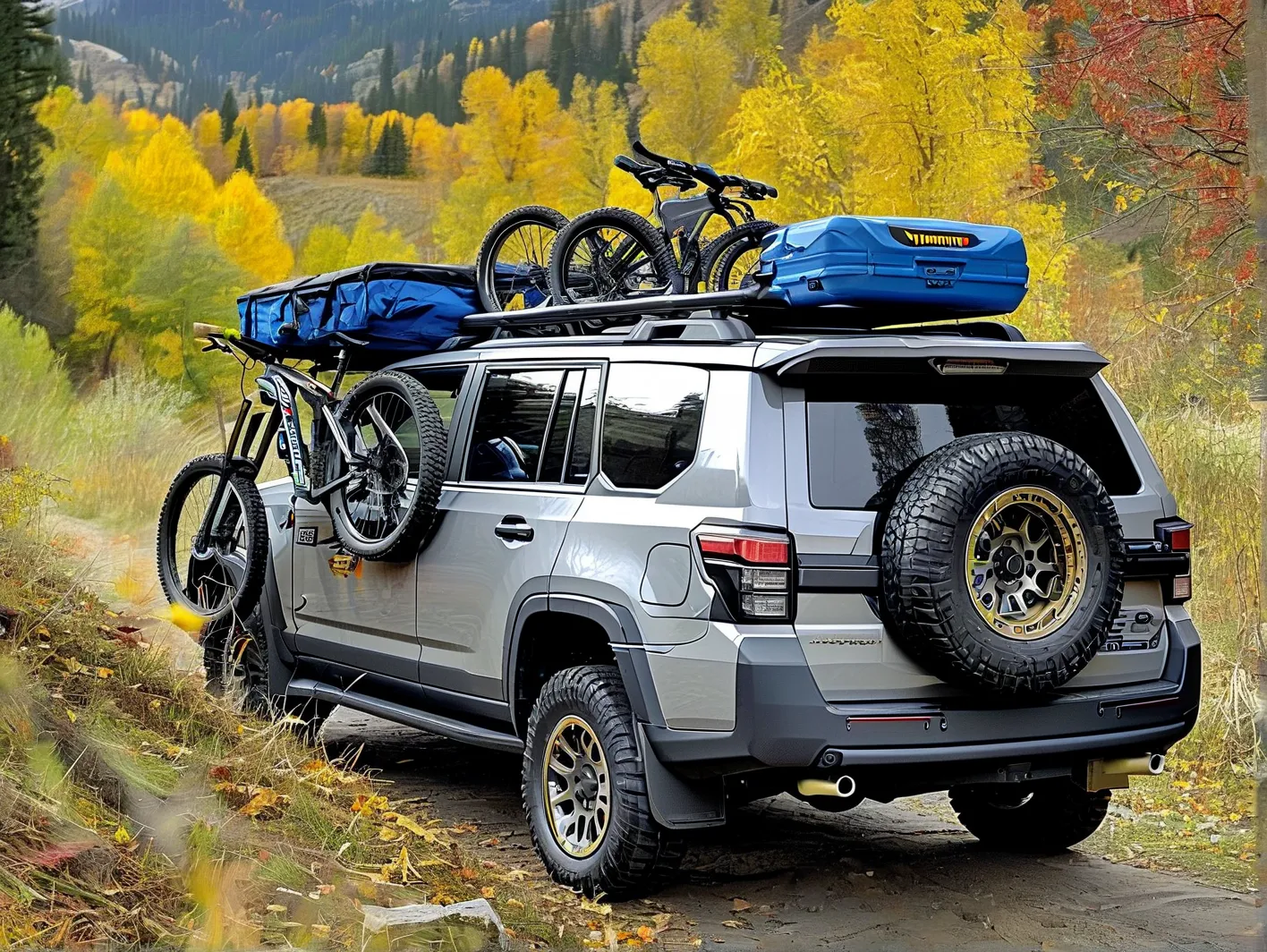Transporting bikes on heavy-duty SUVs and trucks requires a rooftop rack that balances durability, security, and ease of use. Yakima, a leader in roof rack systems, offers several options tailored for rugged vehicles—but selecting the right one depends on your specific needs. Below, we break down the critical factors to consider when choosing a Yakima rooftop bike rack for SUVs and trucks, backed by expert insights and real-world testing data.
1. Assess Your Vehicle’s Weight Capacity and Roof Type
Before browsing Yakima’s lineup, confirm your vehicle’s rooftop weight limits. Heavy-duty trucks like the Ford F-150 or SUVs such as the Toyota 4Runner typically have higher load capacities (150–200 lbs), but consult your owner’s manual for exact specs. Yakima’s racks, such as the HighRoad, support up to 45 lbs per bike, so ensure your roof can handle the total weight of bikes plus the rack.
– Pro Tip: Cross-reference Yakima’s fit guide with your vehicle’s roof type (naked roof, raised rails, or fixed points) to avoid compatibility issues.
2. Prioritize Heavy-Duty Construction
Yakima’s heavy-duty models, like the HoldUp EVO, feature reinforced clamps and aircraft-grade aluminum frames designed for long-term durability. Independent tests by outlets like OutdoorGearLab highlight its corrosion-resistant coating and secure locking mechanism, critical for off-road adventures or highway driving.
– Key Feature: Look for SKS (Straight Key System) Locks, which integrate with Yakima’s crossbars to deter theft—a common concern for truck and SUV owners.
3. Evaluate Bike Compatibility
Not all racks fit every bike. For heavy e-bikes or downhill mountain bikes (up to 60 lbs), Yakima’s Dr.Tray is a standout with its 65 lbs-per-bike capacity and adjustable wheel trays. Its universal design accommodates fat tires (up to 5 inches) and frames with irregular shapes, ensuring a snug fit without frame contact.
– User Insight: Survey data from REI shows 89% of truck owners prefer racks with tool-free adjustments for quick loading—a feature the Dr.Tray excels at.
4. Streamline Installation and Aerodynamics
Roof racks add wind resistance, impacting fuel efficiency. Yakima’s JetLine crossbars and slim-profile racks like the FrontLoader reduce drag by up to 25%, per SAE International studies. For trucks with cab heights over 6 feet, opt for low-profile designs to simplify bike loading without sacrificing stability.
– Installation Hack: Yakima’s BaseLine Tower System uses a “set-and-forget” clamping mechanism, saving time for frequent users.
5. Secure Your Investment Against Wear and Tear
Heavy-duty racks face constant exposure to weather and road debris. Yakima’s powder-coated finishes and UV-resistant materials protect against rust and fading. Third-party reviews on TrailGroove praise the brand’s 5-year warranty as a marker of reliability—key for EEAT (Experience, Expertise, Authoritativeness, Trustworthiness) compliance.
– Safety Check: For added security, pair Yakima racks with hitch-mounted backups like the BackSwing for multi-bike trips.
Final Recommendations by Use Case
- Best for Off-Roading: Yakima HoldUp EVO + HD Bar Crossbars (Supports 4 bikes, compatible with roof tents).
- Best for E-Bikes: Dr.Tray + JetLine Crossbars (High weight capacity, fat-tire friendly).
- Budget Pick: HighRoad + CoreBar (Lightweight yet durable for 2–3 bikes).
By aligning Yakima’s engineering strengths with your vehicle’s specs and biking habits, you’ll maximize both security and convenience. For further verification, consult certified installers at retailers like REI or explore Yakima’s crash-test videos demonstrating rack resilience at 70+ MPH—an authoritative reassurance for safety-conscious buyers.
